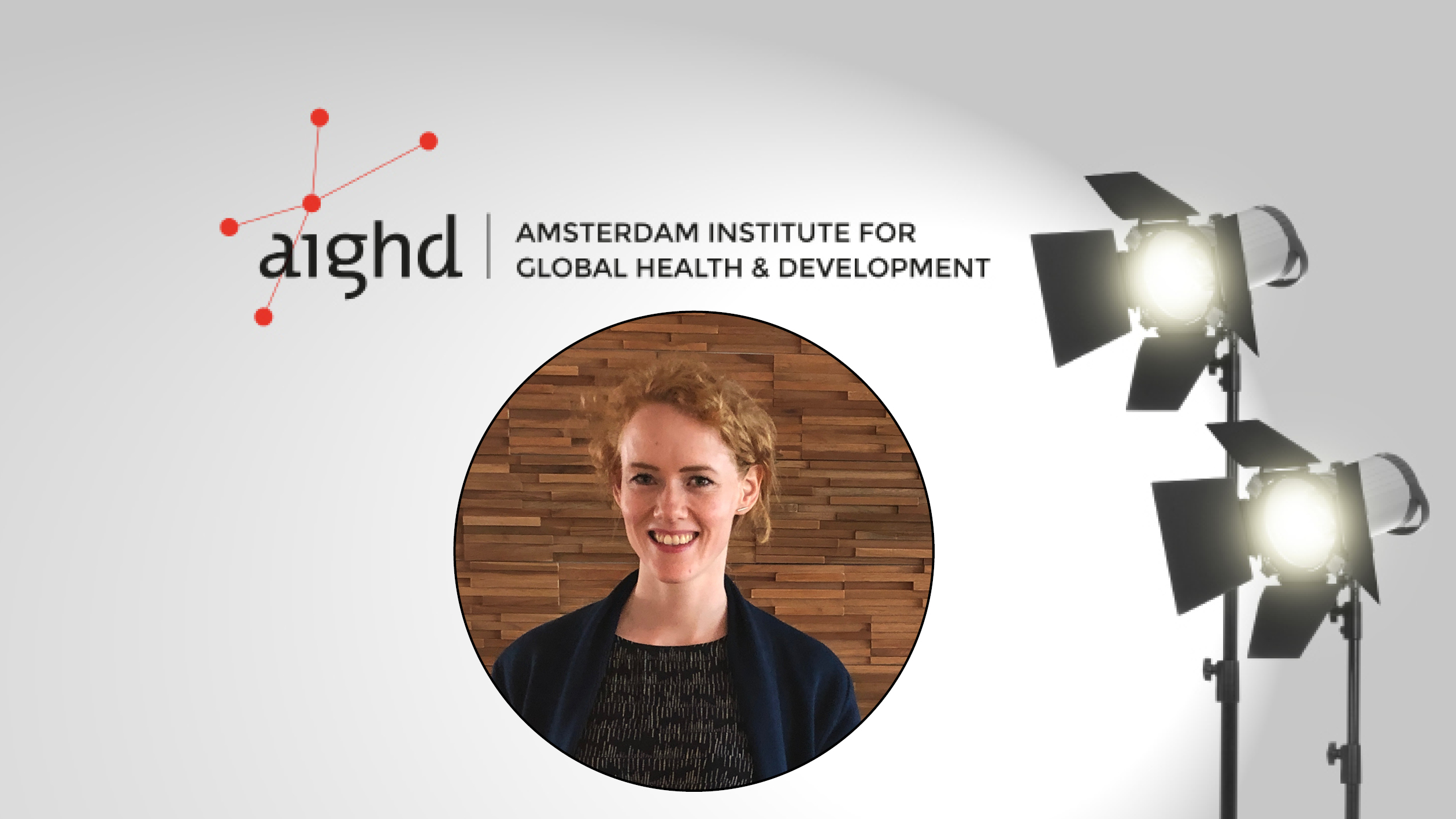
11 Sep AIGHD in Person: Eveline Verheij
For PhD candidate Eveline Verheij, diversity in her studies is important – and AIGHD is a perfect fit.
“I did a lot of research before I applied for my PhD at AIGHD and was attracted to this PhD position because the work is so versatile. It’s a package deal: I coordinate the study, do medical work, data collection, statistical analyses and I have the opportunity to write papers together with my supervisors. I wanted to do more than just one or two of those functions so this position was a natural fit for me,” said Verheij.
Verheij finished medical school in 2014 and started her PhD in 2016. She works on aging and HIV as part of the AGEhIV project, which looks at the incidence and prevalence of age-associated co-morbidities in individuals living with HIV.
At the moment, she conducts analysis on co-morbidities, frailty and gut flora in individuals living with HIV. Working at AIGHD has enabled her to expand her network and learn about other aspects of global health from her interdisciplinary colleagues.
“I particularly like the weekly research meetings on Fridays where different researchers present their work and answer questions from colleagues. I learn so much about research in different fields like malaria and TB and see how they face similar challenges to those that we face in HIV research. It gives me inspiration and support for my own work.”
In addition to working alongside other researchers in various fields, it was the opportunity to work under the supervision of renowned HIV researcher Prof. Peter Reiss that drew Eveline to AIGHD. Prof. Reiss is a member of AIGHD’s Academic Staff.
“Prof. Reiss is a very good storyteller: he describes his research in a logical and coherent way so that others can understand. He is patient and the quality of his work is always great. He is also flexible, so if my data indicates something, he supports me exploring that in greater detail. He is also not afraid of sharing his knowledge or our data with someone else, if he thinks this collaboration could favor the quality of the analyses and thus publications,” she said, adding that writing up her results is an area she wants to develop further.
Verheij hopes to finish her research in a couple of years, shedding light on some of the mysteries that still surround aging and HIV.
“My goal is to find out which individuals living with HIV are at an increased risk of poor health outcomes, in order to provide better care for those who need it.”
To learn more, visit the project page of AGEhiV.
